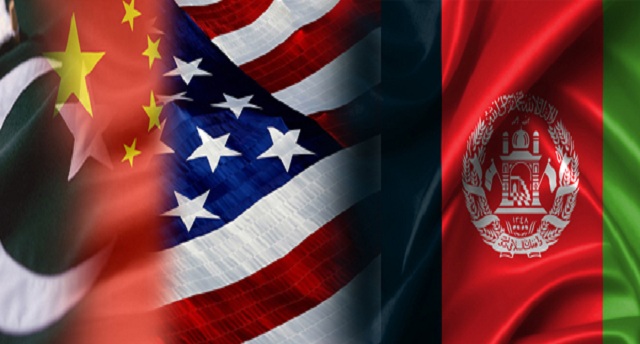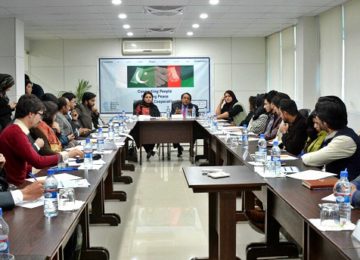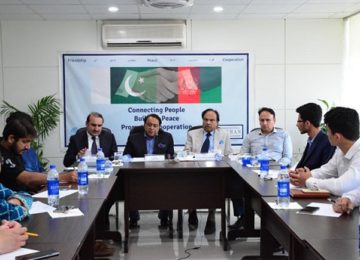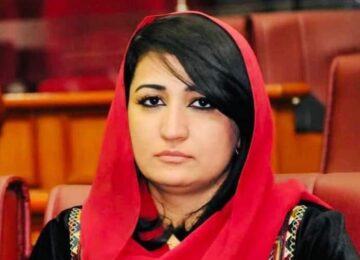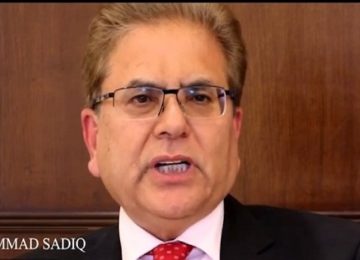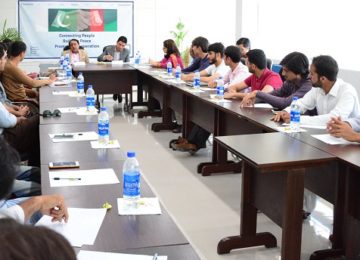In the wake of US Deputy Assistant Secretary for the State Department’s recent visit to Pakistan last week, Tahir Khan, senior journalist, shared his insights about the purpose of this visit, the US’ demands from Pakistan, and the role Pakistan can play in the Afghan peace process.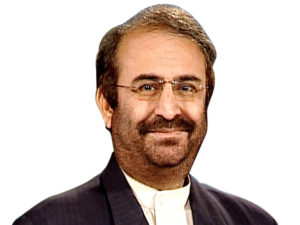
Speaking to CRSS, Tahir Khan was of the view, “the US has to understand the ground realities and accept that the primary reason for the war in Afghanistan is the presence of foreign troops themselves. The war will continue until and unless this factor is addressed. Taliban have always insisted that they will never stop fighting unless the last personnel of the foreign troops leaves Afghanistan.”
There is a log-jam at the present; the Taliban want direct talks with the Americans while the Americans assert they should talk instead with the Afghan government. Taliban, on the other hand, claim that it is not possible for them to sit with the Afghan government on the negotiation table when they don’t even recognize it in the first place.
Tahir Khan reckons that Americans have now realized that their current strategy is not working, hence they are showing some flexibility. On June 16, 2018, American Secretary of the State released a statement that Americans are willing to sit with the Taliban along with the Afghan Government. This was also reinforced by Ashraf Ghani’s Eid tweets, in which he stated that his government is willing to address the concerns/demands regarding the presence of foreign troops. This is the first time the Afghan government has ever shown willingness to discuss Taliban’s demand regarding the withdrawal of foreign troops. Ghani also indicated in his tweets that he is willing to address the concerns of the neighboring countries too; which supposedly meant addressing Pakistan’s concerns primarily.
Khan views the statements of both the Americans and the Afghan leadership to be the outcome of some back-channel diplomacy. In his view, Beijing might be playing a positive role in converging the interests of all stakeholders. “As in recent years, the Chinese have been very proactive in the Afghan peace process,” he told CRSS.
The US has recognized that pressure tactics on Pakistan have not worked and Pakistan also did not pay any heed to US pressures recently. Instead of pressure tactics, Khan stated that dialogue should be pursued. It is very encouraging that the diplomatic channel between US and Pakistan is still open. Officials from both the countries are meeting at regular intervals. It would not be wrong to say that Pakistan is being generous in the overall situation, as it did not halt ground and air communications lines of the US to Afghanistan which run via Pakistan.
There exists some optimism about Pak-Afghan future cooperation following the assault on the high command of Tehreek-e-Taliban Pakistan (TTP) inside Afghanistan – a long standing demand of Pakistan. Khan believes that the action may have been to urge Pakistan to reciprocate by bringing Taliban to the negotiating table. However, Pakistan is cooperating to the maximum that it can in fighting insurgency, Khan stated; the world has to understand that Pakistan’s Army is carrying out military operations against insurgents within its territory and cannot at the same time kill and bring the Taliban to the table. Pakistan also has a concern that if it comes down harshly on the Afghan Taliban, this can lead to another war on Pakistani soil.
Pakistan is very clear about its policy regarding the Afghan Taliban at the present. Pakistani officials express that they are employing a two-pronged strategy i.e., persuasion and a bit of coercion against Afghan Taliban. A full-fledged military campaign against Afghan Taliban is out of the question at present. With that, it is also a fact that Pakistan does not enjoy the same leverage on Taliban it once had, he said. Times have changed. Taliban are very independent in their decisions and protecting their own interests. Moreover, there are many players involved in Afghanistan which include China, Russia, India, and Iran, along with Pakistan. Therefore, a collective responsibility prevails upon every country, and not just Pakistan.
Published: July 06, 2018
© Copyright Center for Research and Security Studies (CRSS) and Afghan Studies Center (ASC), Islamabad.



